Hunterdon Hematology Oncology Featured in NJ Top Docs: Addressing the Rise in Colon Cancer Among Young Adults
We’re proud to announce that Hunterdon Hematology Oncology has contributed a featured article in the 2025 NJ Top Docs issue of Healthy Living Magazine, shedding light on a critical health concern: the rise of colorectal cancer in young adults. This in-depth editorial explores why cases are increasing among individuals born after 1990 and what can be done to address this alarming trend.
Why You Should Read It:
- Understand the Causes: Gain insights into the lifestyle and environmental factors driving this rise.
- Learn the Symptoms: Be aware of warning signs like rectal bleeding, abdominal pain, or changes in bowel habits.
- Stay Proactive: Discover why early screening and awareness are vital for prevention and better outcomes.
This article is a must-read for anyone concerned about their health or that of a loved one. Colorectal cancer is preventable and treatable when detected early, making awareness and education crucial tools in the fight against this disease.
Read the full article in Healthy Living Magazine’s NJ Top Docs issue, and take the first step toward informed, proactive healthcare. Together, we can tackle this growing challenge and ensure a healthier future for all.
Stay informed, stay proactive! Learn more about colorectal cancer prevention and screening options.
Read the full editorial feature in the 2025 NJ Top Docs issue of Healthy Living Magazine or here in this post on our website.
About NJ Top Docs
NJ Top Docs is a comprehensive, trusted and exclusive healthcare resource featuring reviewed and approved Top Doctors and Dentists in New Jersey online in an easy to use format. NJ Top Docs only reviews and approves providers based on merit after they have been extensively vetted. NJ Top Docs is a division of USA Top Docs which allows patients to meet providers online before making their appointment.


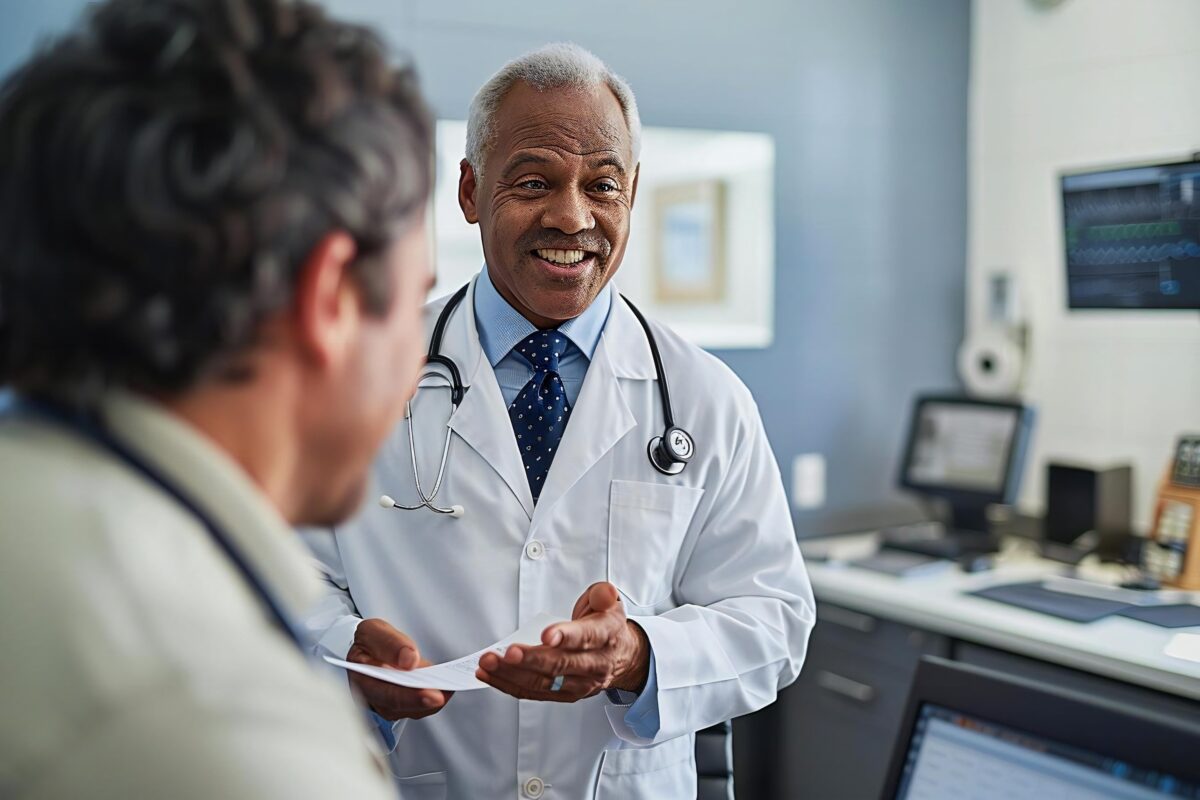
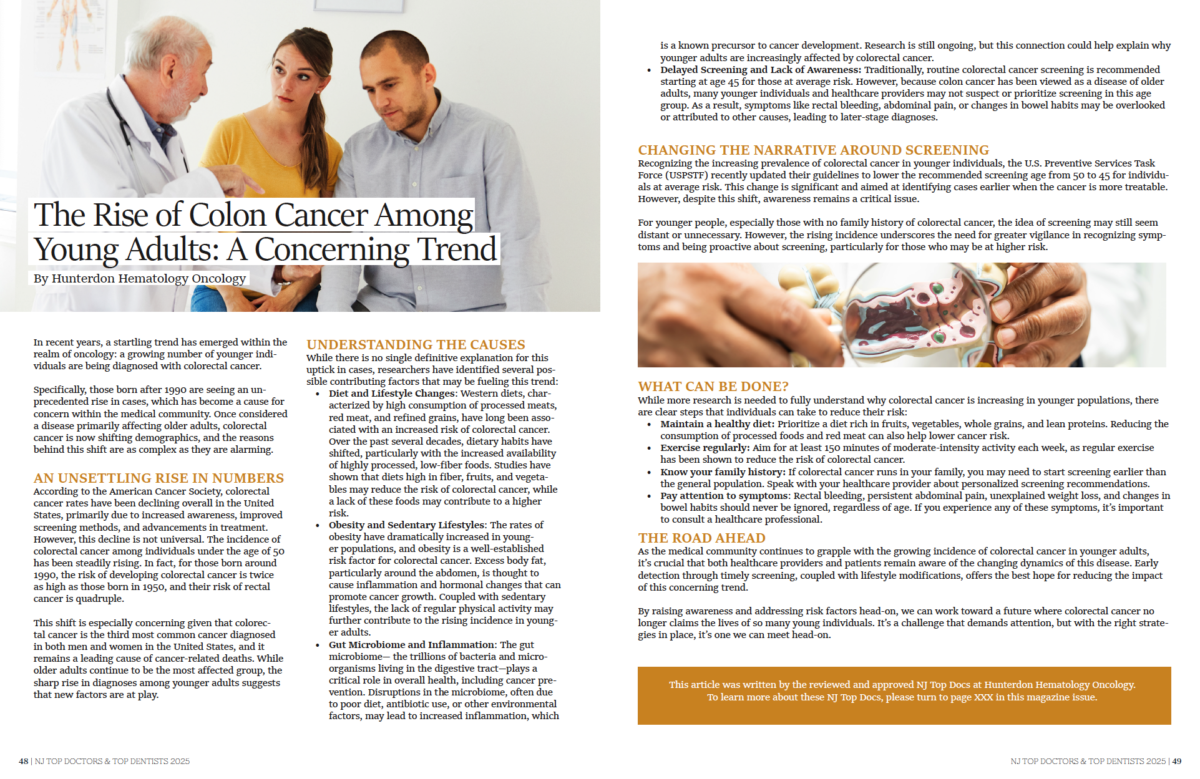

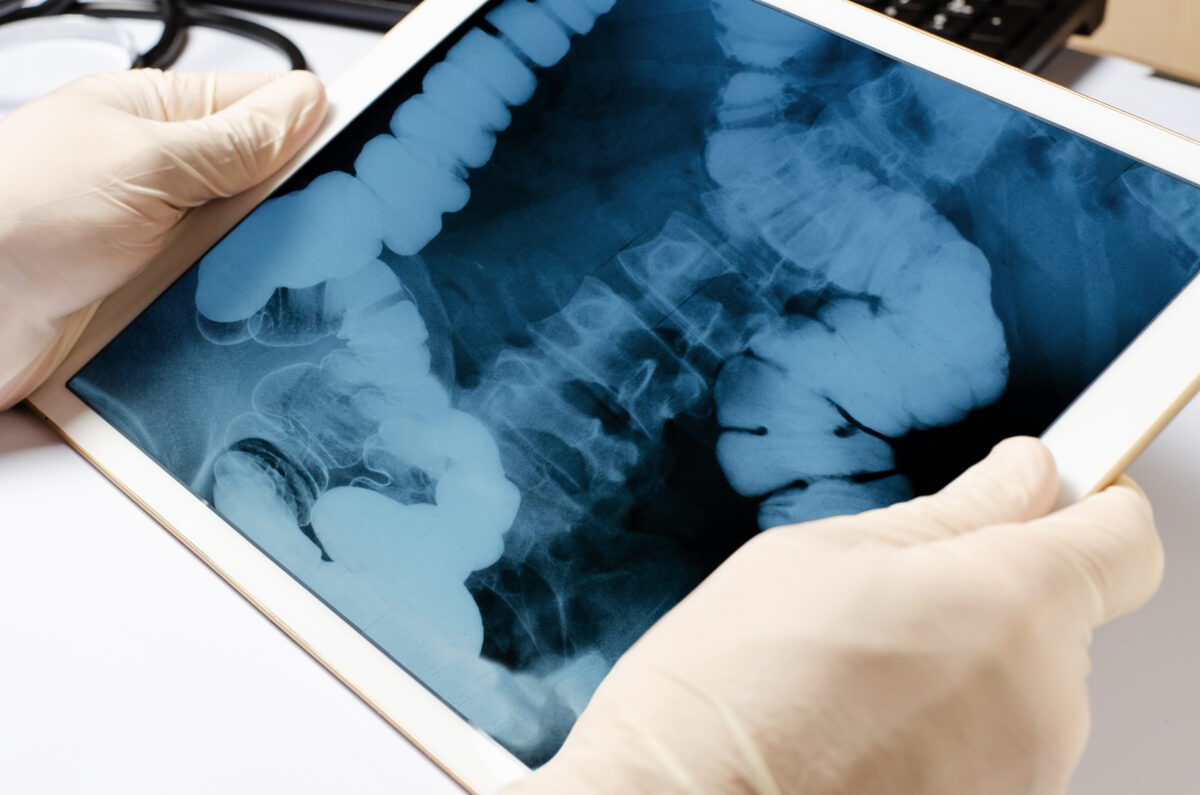
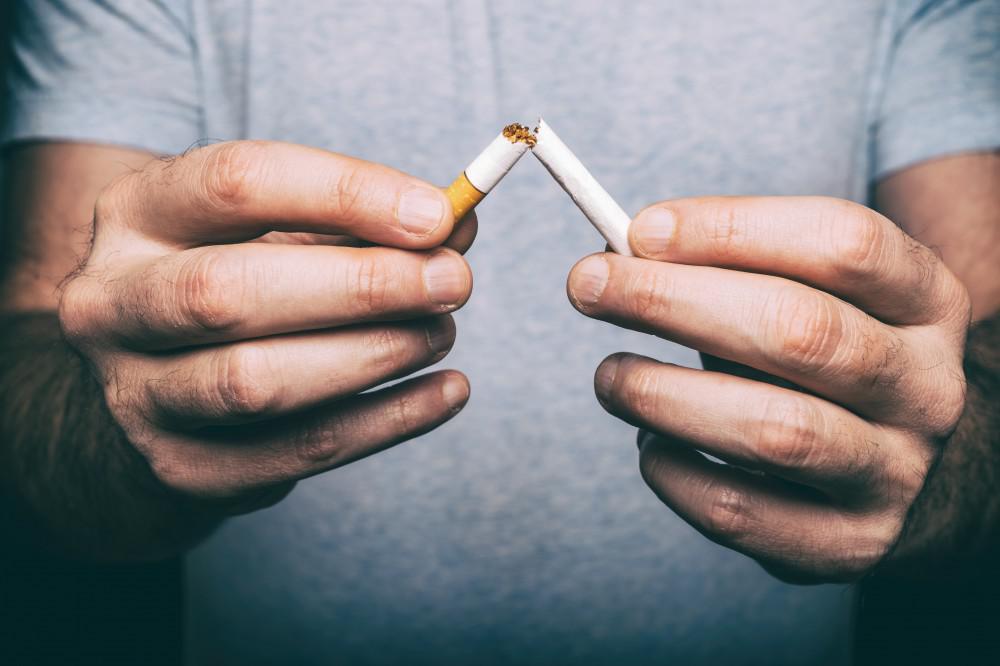
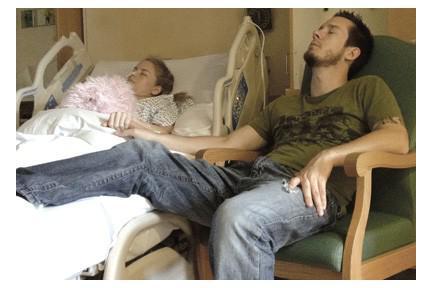
 At the age of 22, Ashley McRoy was diagnosed with stage 4 colon cancer and given a 20 percent chance of survival. Doctors at Hunterdon Regional Cancer Center made sure she made it to her wedding day — and beyond.
At the age of 22, Ashley McRoy was diagnosed with stage 4 colon cancer and given a 20 percent chance of survival. Doctors at Hunterdon Regional Cancer Center made sure she made it to her wedding day — and beyond.